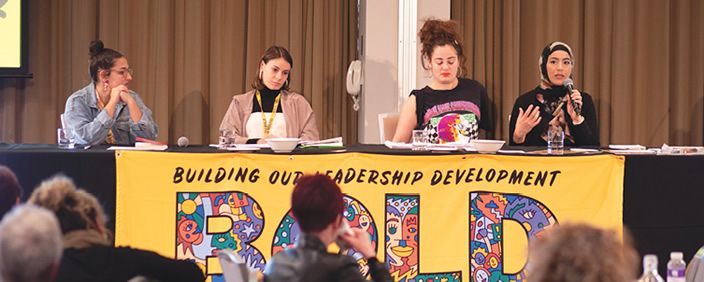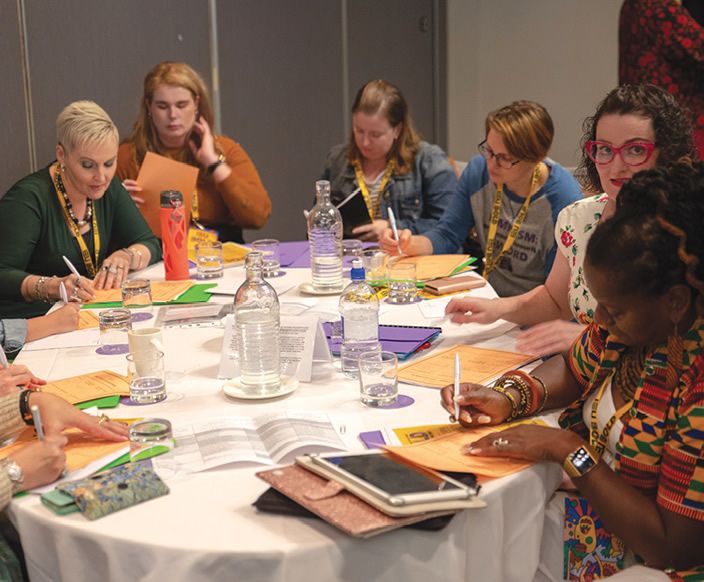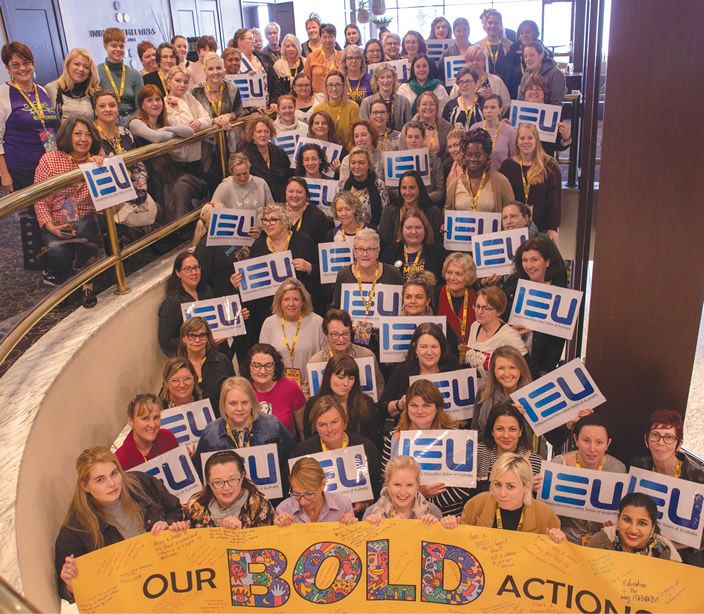
IEU women BOLD enough to bring about change, not only in their Union but in society at large, gathered together recently in Sydney for the Building Our Leadership Development (BOLD) Conference.










































































































































Women being bolder together
2019 November Newsmonth


IEU women BOLD enough to bring about change, not only in their Union but in society at large, gathered together recently in Sydney for the Building Our Leadership Development (BOLD) Conference.

The BOLD conference drew members from all over Australia to gain strength from each other and a number of invited guest speakers, panel presenters and workshop facilitators.

This was the second BOLD conference, many participants had attended the inaugural conference held in Canberra two years ago.

IEUA Assistant Federal Secretary and conference convenor Christine Cooper said the BOLD program was designed to empower women to lead other women addressing disadvantage in a system that was failing them.
“BOLD women mentor other women. BOLD women bring about change. We are all leaders with the power to tackle problems, such as the persistent gender pay gap, gender violence and sexual harassment.”
The keynote address was delivered by writer and presenter Jamila Rizvi, who urged BOLD participants to stop saying they were ‘lucky’.
Rizvi argues women frequently put down their success in life to luck, rather than acknowledging the hard work and skill that has made them who they are.
“It’s a woman’s job to be likeable – no one likes a successful woman . . . she is quick to put her success down to chance rather than pushing herself forward for fear of being considered ‘ambitious’.
“She’s saying, please don’t hate me because I’m successful”.
Rizvi outlined the systemic and persistent disadvantages that continue to plague women in the workforce, such as the lack of superannuation for women who tend to be in lower paid jobs.
“There are more CEOs in Australia called Andrew than there are women CEOs,” she said.
Teachers could play an important role tackling gender stereotyping in the classroom and help stop the trend of women “ruling themselves out of contention”.
The strong line up of speakers and panellists included Jennifer Moses, the National Officer for Equality and Training at NASUWT, the teachers’ union in the UK.
The first black women to achieve a senior post in the union, Moses outlined her own battle with an organisation which was, 20 years ago, “male, stale and pale”.
“I personally feel very inspired with how far the union has progressed since those days,” Moses said.
But there is still much work to be done. A NASUWT survey found 42% of female teachers reported being sexually harassed by a pupil.
A panel discussion Where to #MeToo concluded Australia’s defamation laws had had a ‘chilling effect’ on the movement in Australia. Other panels consisted of BOLD women in the IEU and ‘kick arse activists’.
Workshops covered a variety of topics such as BOLD actions for respectful workplaces, getting our voices out, authentic activism and networking.
During the course of the day delegates were asking two questions: Why do we need women to be BOLD leaders in our Union? and how will you use your BOLD power to bring about change?
Here is a selection of replies
Kylie Martinez
Aboriginal Education Worker NSW/ACT Branch
As a Wiradjuri woman I feel I am responsible to my people and the next generation to be BOLD to speak against injustices. I use my BOLD powers as a mother and a worker to educate children about equity and kindness.
Narelle Ryan
Teachers Aide NSW/ACT Branch
We need to look out for each other so the fear and stigma that means we can’t be who we are dissipates and our self-worth builds. I wrote in the conference booklet that I am a tree with large branches to spread out and shade people and to give support to withstand ridicule and allow others to believe in themselves.
Suzanne Penson
Teacher Librarian NSW/ACT Branch
Women need to stand up for women’s issues and rights in the workplace and need strong women to be an example as well. My BOLD power is putting my words into action by supporting people in the workplace.